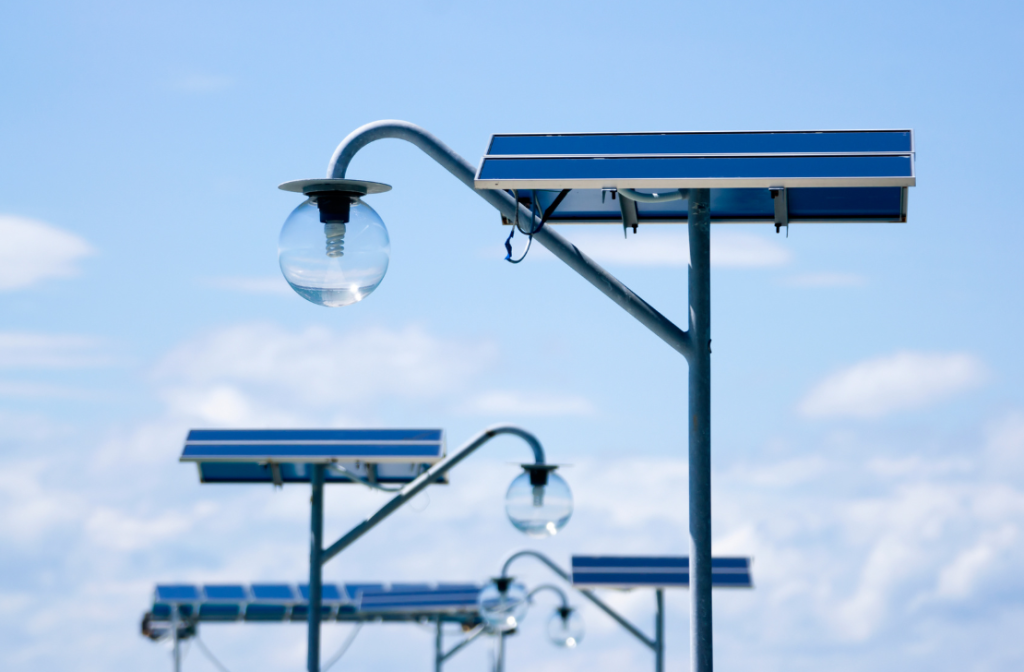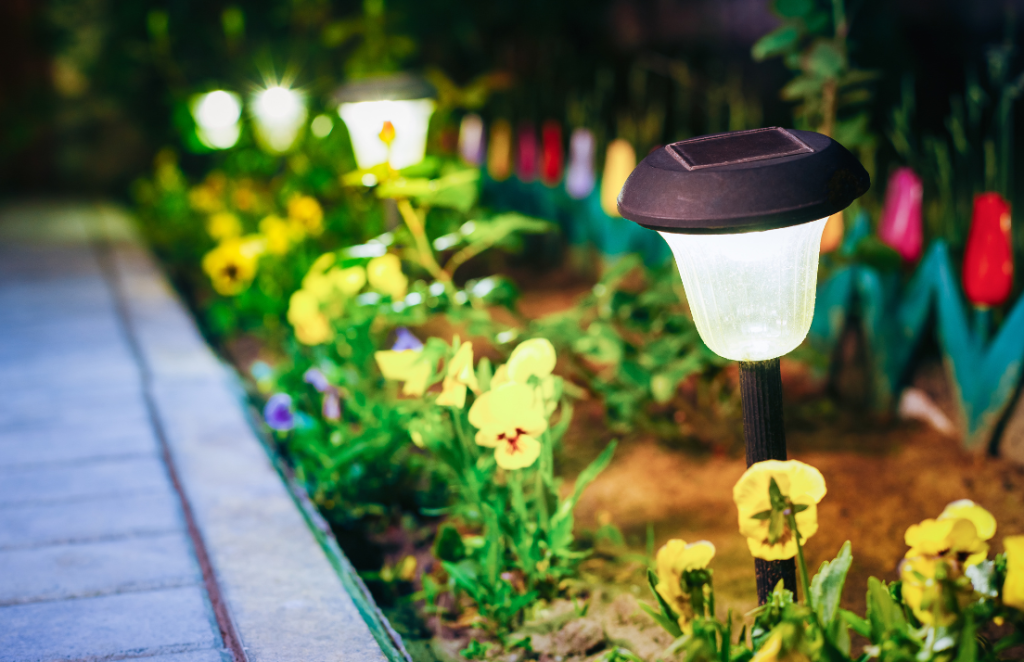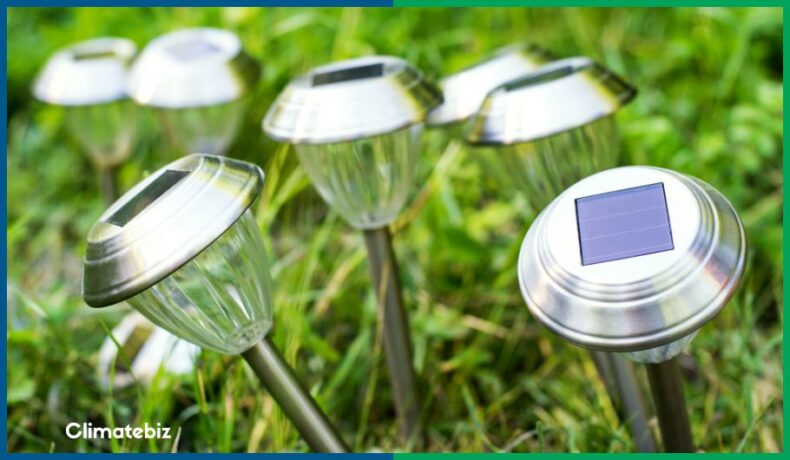Solar lights are becoming a staple in many people’s homes. Their ability to harness free energy (sunlight) through their solar panels makes them a handy addition to any outside area. But the question remains, do solar lights need direct sunlight to function correctly?
The answer is more complex than you may think.
We explore this further by looking at sunlight exposure and how it affects performance. Additionally, we provide you with tips on how to get the most out of your solar lights.
Table of Contents
What Are Solar Lights And How Do They Work?
Solar lights are a form of outdoor lighting that harness the sun’s energy to power their bulbs. This is possible thanks to their accompanying solar panels made of photovoltaic/solar cells.
These cells convert sunlight into direct electrical current (DC) that the lights use at night or in low light conditions.
But how does this take place?
Every solar cell consists of multiple crystalline silicon layers. These layers produce positively charged spaces alongside negatively charged electrons.
As sunlight enters a solar cell, it excites the negatively charged electrons and forces them into the positively charged spaces. These spaces then transfer this electron stream as DC electricity through wires to batteries until it is used.
During the day, the battery charges until evening approaches, at which point the solar cells stop the conversion process. This is thanks to built-in photoreceptors that detect darkness and turn the lights on using the power from the batteries.
Related Reading: Solar Lights Not Working: We Explain How To Fix Them
Do Solar Lights Need Direct Sunlight To Function?

One frequently asked question regarding solar lights is whether they need direct sunlight to function properly. The answer is that it depends on the type of solar light.
Some solar lights, such as solar-powered floodlights, will work even in low-light conditions. However, other solar lights, such as solar spotlights, need direct sunlight to charge sufficiently.
In general, it is best to place solar lights in an area that receives plenty of sunshine during the day. This ensures that the batteries are fully charged for the lights to provide adequate illumination at night.
Why Do Solar Lights Need Direct Sunlight?
If the solar panel does not receive enough sunlight during the day, the batteries will not charge fully, and the light will not be as bright at night. A lack of sunlight may also reduce the battery life.
For these reasons, it’s crucial to place solar lights in an area that receives direct sunlight during the day. Doing so will ensure that they provide maximum brightness at night.
How Much Sunlight Do Solar Lights Need To Work?
6-8 hours of direct sunlight will allow a solar light to operate for 8 hours or more. That said, the quality of the light, the solar panel, and the amount of direct sunlight it receives will significantly impact this length of time.
Related Reading: How To Make DIY Solar Lights For Your Garden
Tips For Maximizing The Effectiveness Of Solar Lights

Solar lights are a great way to add light to your yard without adding to your electric bill. However, you can do a few things to get the most out of them:
- Place the lights in direct sunlight. This will ensure the lights charge and provide adequate light throughout the night.
- Clean the solar panel regularly. This will remove any dirt or debris that could block the sun from reaching the panel and prevent the light from charging correctly.
- Replace the batteries. Solar batteries generally only last for about two years, so keeping an eye on them and replacing them when they dwindle is essential.
- Turn them off when not in use. If your solar lights have an on/off switch, turn them off during the day. This will prevent the batteries from being drained unnecessarily.
- Pay attention to positioning. Position the lights so that they will illuminate critical features in your landscape. You can create a stunning focal point in your yard by shining a light on a lovely garden statue or fountain.
Following these simple tips can enjoy the benefits of solar lighting for many years.
Can Solar Lights Work On Cloudy Days?
Yes, solar lights can work on cloudy days, but they may not be as bright as on a sunny day.
While solar lights rely on the sun to charge their batteries during the day, during cloudy days, some sunlight can filter through the clouds, allowing the solar lights to charge and provide light.
Related Reading: 20 Best Batteries For Solar Lights (Buyer’s Guide)
Final Thoughts
Solar lights are an excellent option for outdoor lighting. They are environmentally friendly, cost-effective, and easy to install. However, it’s essential to position them in a spot with plenty of direct sunlight and maintain them regularly for optimal performance.
Consider incorporating solar lights into your landscaping for beautiful and sustainable lighting.
Thank you for reading! We hope this information has been helpful in your decision to use solar lights for your home or business.
Have you used solar lights before? Let us know about your experience in the comments below.
Happy illuminating!

